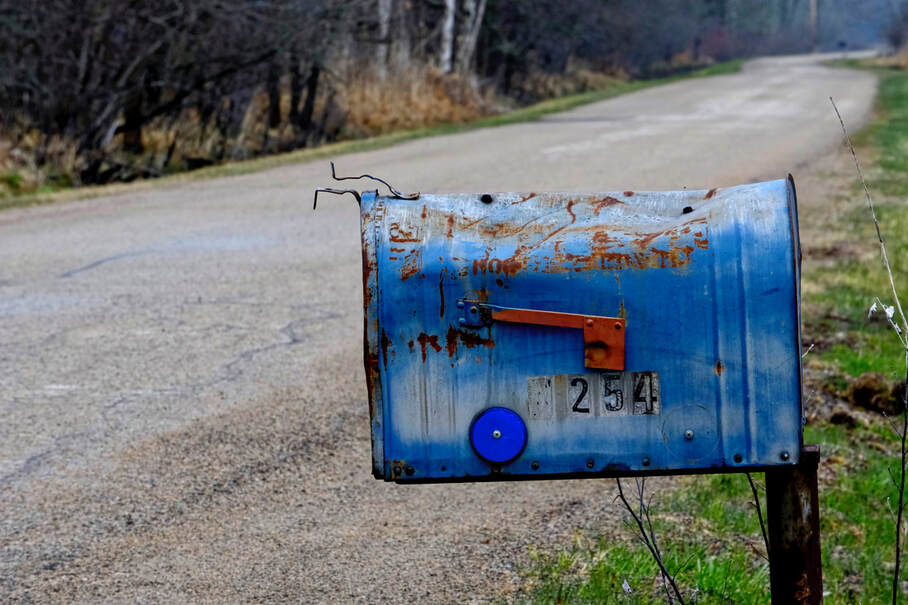|
12/4/2022 Poetry By Wendy Barry R. Miller CC
Too Much Water If she’d lived, she’d have drowned nonetheless-- in all the madness. When she drives to work every day—from Willow Street, up the highway that runs aslant Brook River, the weeds are hanging off her, streaming out the window of the car—long purples, maidenhair. Upon her head rests a crown of crow-flowers and nettles, entwined with the stems of her bifocals, pushed back on her hair for the drive, cheap sunglasses on her face instead. She pulls into the parking lot, and as she steps out of the car, the water sluices from the open door, around her clothes, spilling across the asphalt, filling the parking lot. Daisies and ragged robins sail past her feet on a stream filled with broken glass--glinting fantastically in the sun--and candy wrappers. The hoary leaves sweep by, towards the sewer grate--lifted on the muddy stream. The billows of her coat carry her along, buoying her up for a while in the flood, shoes ruined again. Her briefcase, full of essays, pendant on her shoulder, and clambering for attention. She sings snatches of old songs plucked out of the airwaves—a poor singing wretch. Indued unto another element, she leaves a nettle on the counter at the grocery store checkout, and puddles on the floor at the vet. Pool Don’t save me, says the child. The child is barely treading water. Their little face is just poked above the surface--nose pointed up at a turquoise sky—the flaring nostrils--blue eyes, darker than the water, and bright, like sapphires--blueberries--night-sky--the droplets of water in their hair, on their face, in their eyelashes, shining. Cheeks rosy from exertion and the sun. The pool around them is cerulean and stretches out in a wide rectangle from the child in the deep end. We are right there. Stout little legs are kicking hard beneath the water, and they are puffing mightily, their small lungs pumping. Don’t save me, they say. We look at each other. We know this child. We do not save them. We let them kick. The sun is beating down on us. The wasps are patrolling the patio. Scrubby bushes poke through the red dirt. Pool toys are strewn everywhere, bright-colored towels, careless lounge chairs grouped in disarray. Don’t save me, says the child. The child is still kicking. Don’t save me, the child says. The child is grown. They are still kicking. Don’t save me, they say. Plenty Everybody brings food--when it hits. Those whose house it has missed, for now, bring offerings to our secret god: the butterbean casseroles prepared, the hams of sympathy--baked in honey, green beans with curled onions and cans of condensed soup, containers of fried chicken, both in buckets and boxes, or lasagna, vegetable or sausage, macaroni and cheese from a variety of recipes, baked ziti, brownies, bagels with cream cheese and lox, pastries, salads with broccoli florets, and quiches. Called to the temple of grief, they bring the food in baking dishes or aluminum pans, not their good dishes, because who knows when things will come around, when they will be returned, when it will all come back to you. The people fill the house, talking, some laughing. They bring the food. They are not dead. The refrigerator fills up, packed sideways and backwards, and stuffed into chaos, and the platters come out of the cupboards and the china cabinet. The high priestesses take charge, and onto the table the women and girls pile the food, the plates, the napkins, the spoons, forks, dull knives, while the shamans and acolytes drink shots of the burning water of life on the porch, or away, behind the garage, at the back of the yard, or accept a beer in the driveway from the cooler in the trunk of a car of a true believer. Spread out on the dining room table, and kitchen island or counters, Pyrex dishes of scalloped potatoes, stockpots of vegetable-bean soup, and cornbread, baked in a skillet, chicken and rice, and poundcake, banana pudding, barbecue, buns, and coleslaw are arranged with fruit salad, cold-cuts, chicken pot-pie, ears of corn from their garden, chocolate-chip cookies, croissants. The grieving heap their plates and come back for more. They eat in silence, balancing dishes and cutlery on their laps, perched on benches or folding chairs, the good, upholstered furniture. They know there is plenty to go around. Wendy Barry is a Connecticut Yankee living in South Carolina. She has recently had poems accepted for publication at The Meadow and Santa Clara Review and is the co-editor of The Annotated Anne of Green Gables from Oxford University Press. She is a poet, gardener, jewelry-maker, painter, teacher, and friend to dogs. Comments are closed.
|
AuthorWrite something about yourself. No need to be fancy, just an overview. Archives
April 2024
Categories |

 RSS Feed
RSS Feed
